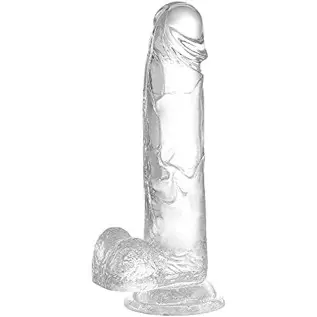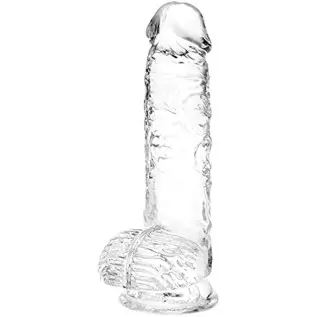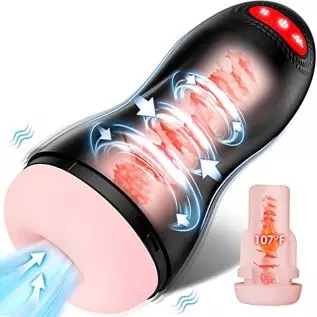What are the symptoms of menopause in women? Teach you 7 tips to survive menopause
When women enter menopause, their bodies and minds will undergo great changes. If they cannot take care of themselves in time, they may cause big trouble to their health. Therefore, I hope that all women will take good care of themselves during menopause. Work and prevent disease. Many people ask what symptoms women will experience during menopause. How do women survive menopause?
Common symptoms of menopause
1. Emotional instability
We often feel that women in menopause often show unstable emotions, sometimes feel flustered and have shortness of breath. At this time, women need to adjust their emotions themselves, not to be too impatient, and to maintain emotional stability.
2. Irregular and irregular menstruation
Menopausal women will first experience some changes in their physical condition. Specific manifestations include irregular menstruation, irregular menstrual cycles, long-term absence of ovulation and bleeding, sudden cessation of menstruation, etc. Of course, under normal circumstances, menstruation will not stop suddenly, because the ovaries are in a gradual decline process, and the probability of sudden stop of menstruation is relatively small.
3. Teeth become dirty
After the human body reaches the 40 mark, the secretion of saliva in the mouth will begin to decrease. At the same time, the ability of saliva to carry away bacteria is weakened. In this case, our gums are prone to decay and deterioration. In addition, the enamel on the teeth will also become thinner and dull, and the dentin in the teeth will thicken.
4. Changes in blood pressure
Generally, the systolic blood pressure is increased, but the diastolic blood pressure is not high, and the fluctuation is very obvious. Most of them occur at the same time as flushing and sweating. When blood pressure rises, dizziness, headache, swollen eyes, chest tightness, palpitation, etc. may occur. Unlike essential hypertension, these symptoms are paroxysmal.
5. Flushing and frequent sweating
After menopause, many women often feel a rush of heat on their face, resulting in localized redness and sweating. The time of each attack is different. Of course, if it is not adjusted in time, it can easily affect the individual's physical and mental health.
6. Bone and joint muscle symptoms
Menopausal women often suffer from acute or chronic muscle pain, which is more common in the shoulders, neck, lumbosacral, sacroiliac joints and other parts. It may be aggravated by exertion or cold and relieved by rest. Joint pain is more common in knee joints, lumbosacral joints, hip joints and finger joints. Osteoporosis mainly affects the spine, manifesting as low back pain. Fractures are more likely to occur, and fractures of the femoral neck, wrist bones, and spine are common.
How do women survive menopause?
1. Learn to identify yourself
Daily life should be relaxed and happy. Understand that menopause is a necessary stage in life. Understand the various symptoms that will occur during menopause. After being mentally prepared, women after entering menopause should treat the menopausal encounters with a calm attitude and a normal mind. Various physiological and psychological changes, and recognize the changed self, so as to make timely psychological adjustments, alleviate psychological symptoms, and survive safely. Even if there are many discomforts, they can be solved under correct guidance without causing psychological pressure. .
2. Try to vent yourself
Many female friends will always have ups and downs in their emotions in life and work, and they will vent their emotions in some way. Facts have proven that people who are good at venting tend to be healthy, while people who are not good at venting tend to cause physical damage to themselves. Women entering menopause have poor mental stability and high emotional fluctuations, so it is particularly important to learn to vent themselves. It is recommended to talk and communicate with others more, turn conflicts into friendship, and learn to control anger and think from others' perspective. In real life and work, you still need to have a little bit of Ah Q's spirit, but you have to regulate your emotions well, and keep a certain balance. Don't be too depressed, don't get too out of control, and maintain a stable mentality.
3. Eat more vegetables and whole grains
Many vegetables are rich in fiber, such as bean sprouts, radish, taro, seaweed, leafy vegetables, potatoes, cucumbers, green peppers, etc. These fiber-rich foods have a good digestive effect on the human intestine and have Promote intestinal peristalsis and help the rapid excretion of cholesterol.
In addition, onions and garlic have good fat-lowering and food-supporting effects. Fungus and shiitake mushrooms can replenish qi and strengthen the body, replenish qi and help feed. And you should eat more foods rich in thiamine and niacin, such as cereals, brown rice and legumes. Thiamine has a certain sedative effect, and niacin can dilate blood vessels, which is beneficial to lowering blood pressure.
4. Eat as much fish, shrimp and beans as possible
Protein is related to the construction and repair of our human tissues and the maintenance of immune function. But be aware that land-based animal meats are usually accompanied by a lot of saturated fat, which can make you gain weight. Therefore, it is recommended to reduce land-based animal meat foods and focus on low-fat dairy products, beans, fish and shrimps. Protein source.
5. Perform regular cervical smear tests
West pointed out that before and after menopause, women are at increased risk of diabetes, heart disease and high blood pressure, and 90% of cervical cancers occur by the age of 45. Therefore, menopausal women should have cervical smears every 3 years, have annual pelvic exams, and have their blood pressure and cholesterol levels checked frequently.
6. Carry out weight training
During menopause, women's metabolism slows down, so they need to rely on fitness to help speed up their metabolism. Weight-bearing exercises such as walking, jogging, biking, or jumping on a trampoline can help maintain bone density and prevent osteoporosis. This kind of exercise is suitable for 5 days a week, half an hour a day.
7. Caring for breasts
80% of breast cancers occur after menopause, so if you notice any changes in your breasts, see your doctor immediately. Women should have a mammogram every 3 years after the age of 50.
















